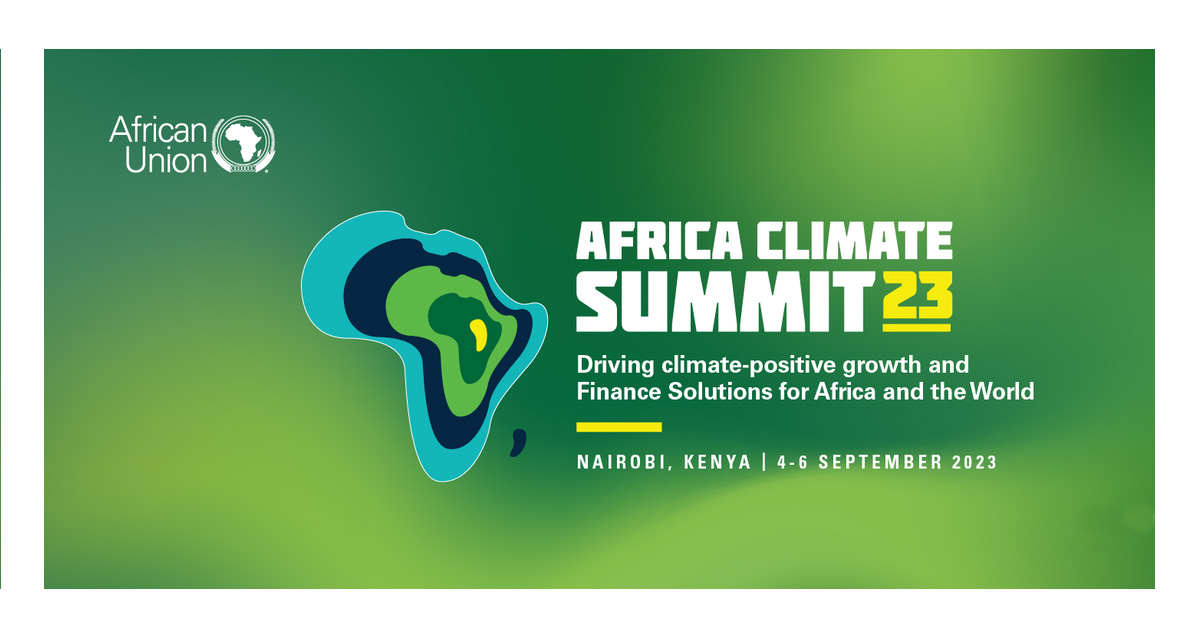
Empowering African Farmers for Sustainable Farming Culture
Shaping a Greener Future for the Continent and the World
In the face of an ever-escalating climate crisis, Africa has emerged as a critical battleground for global climate action. The Africa Climate Summit 2023, scheduled to take place from September 4 to 6 at the Kenya International Conference Centre, promises to be a pivotal event that could reshape the trajectory of climate change mitigation and adaptation efforts on the continent and beyond.
The Urgency of African Climate Action
Africa, home to 1.3 billion people and some of the world’s most vulnerable communities is experiencing the devastating impacts of climate change firsthand. From prolonged droughts and desertification to increasingly frequent and severe cyclones, the consequences are dire. The continent also faces displacement, migration, and food crises, making it clear that immediate action is not an option but a necessity.
Africa’s Assets and Global Collaboration
The Africa Climate Summit 2023 seeks to shift the narrative away from the Global North vs. Global South divide, emphasizing the importance of collaboration and collective action. Africa, with its abundant resources, including renewable energy potential, critical minerals, vast agricultural opportunities, and rich natural capital, is poised to contribute significantly to global decarbonization efforts.
By harnessing these assets, Africa can drive its own green growth while supporting global renewable energy needs. Moreover, the continent presents attractive investment opportunities for global capital to promote decarbonization and local economic development.
The Call for Global Taxes and Funding Mechanisms
To meet the ambitious emissions reduction targets and provide the necessary funding for climate action, the summit advocates for a comprehensive global funding mechanism. This mechanism could entail targeted taxes on sectors like aviation and maritime, the elimination of fossil fuel subsidies worldwide, and the implementation of a global fossil fuel tax. Carbon Border Adjustment Mechanisms (CBAM) could also be explored as a tool for targeted mitigation and adaptation efforts. Additionally, a global Financial Transactions Tax is on the table as a potential revenue source.
These global taxes would be collected and pooled into a single global fund, with allocation based on achieving maximum climate impact and promoting technological innovation. The proposal also includes the establishment of an independent global governance body to ensure fair fund distribution, free from national interests.
Partnerships and Roles
Effective climate action requires the active participation of various stakeholders. Governments and multilateral institutions play central roles, but the private sector, civil society, philanthropic institutions, and local communities all bring unique contributions to the table. The private sector’s investment can mobilize much-needed capital, while philanthropies can de-risk projects and drive innovation.
Civil society, particularly women and youth, ensures accountability, efficiency, and a science-based approach to climate action. Local and indigenous communities provide invaluable perspectives to ensure sustainable and equitable development pathways.
Commitments and Pledges
At the heart of the Africa Climate Summit, 2023 is a call for leaders to make ambitious pledges and commitments. A “Pledging and Commitment Framework” will guide these actions, offering a chance to turn the tide on climate change, not just in Africa but globally.
Summit Focus Areas
The summit will focus on several key areas:
Conclusion
The Africa Climate Summit 2023 is more than just another conference; it represents a critical juncture in the global fight against climate change. With a focus on collaboration, innovative funding mechanisms, and ambitious commitments, this event has the potential to catalyze a sustainable, climate-positive future for Africa and the world. As leaders gather in Nairobi, the world watches with hope that meaningful change is on the horizon.
For more on Events
Your donation fuels change! Help Agriculture Culture in Africa empower farmers with resources, training, and access to innovation. Together, we can revolutionize African agriculture.
Empowering Sustainable Growth and Innovation in African Agriculture
Sign up to our newsletter